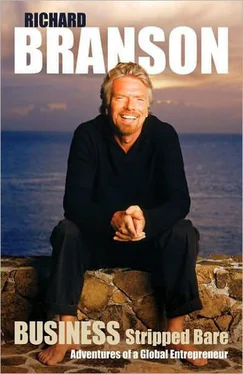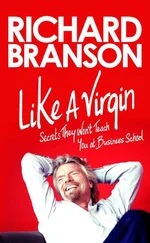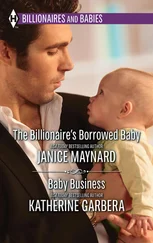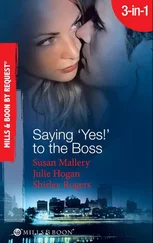But if the average surface temperature rises by 5°C — and scientists now say it will unless we wean ourselves off this business of burning fuels that release CO 2into the atmosphere — then our planet becomes a hostile and arid place. We are now at 14.5°C — moving to 19°C will be disastrous. So we must act now.
Earlier this year, I was clearing out some possessions of the previous owner on Mosquito Island, which is being developed as a low-carbon ecotourist destination in the Caribbean, and stumbled on some old picture books written by Jacques-Yves Cousteau. Cousteau, who invented the aqualung, warned about the destruction of the sea. In the 1970s, he filmed a polluted section of the Mediterranean devoid of life, and these shocking images led to immediate environmental action.
In his first book, Window in the Sea , published in 1973, Cousteau posed the question: What happens if our oceans die?
If the oceans of the Earth should die — that is, if life in the oceans were suddenly, somehow to come to an end — it would be the final as well as the greatest catastrophe in the troublous story of men and the other animals and plants with whom man shares this planet.
With no life in the seas the carbon dioxide content in the atmosphere would set forth on an inexorable climb. When this CO 2level passed a certain point the ‘greenhouse effect’ would come into operation: heat radiating outwards from Earth to space would be trapped beneath the stratosphere, shooting up sea-level temperatures. At both North and South Poles the icecaps would melt and oceans would rise perhaps 100 feet in a small number of years.
The calamity we are facing is not unknown, not unforeseen, not even surprising. Cousteau wrote his prophetic warning thirty-five years ago.
Every business around the world must now radically change its thinking. In every aspect of its operation, it must do much more to reduce the amount of carbon dioxide it releases into the air. And this won’t be easy, since the endeavours of humans in agriculture and business, responding to the demands of consumers and customers, have been partly responsible for creating the problem in the first place.
As mentioned, all of our businesses are looking at how they can reinvent the way they operate to try to minimise the impact they have on the environment. This issue has personally captured my imagination and set me off on a journey to discover new approaches.
First, I had to muster the facts. Then I could look at the marketplace, and come up with a scheme. But I also needed an expert sounding board — which I found in both Professor James Lovelock, a man who is the environmental equivalent of Nelson Mandela, and Tim Flannery, an ecologist whose book The Weather Makers is the best guide to our current situation that I have read.
Scientists have been able to drill a deep hole into the Antarctic ice caps to collect core samples which they have examined. The ice samples contain air bubbles. From the amount of carbon dioxide in the air trapped inside these icy time capsules, they can tell how temperatures have risen over the years. The invention of the steam engine and the arrival of the Industrial Revolution in the 1780s in Britain began this cycle of the age-old process. But even more influential were the medical and social advances that gifted us clean water, sanitation, a better diet and inoculations against common diseases. Suddenly, there were more of us. The population of the world exploded, and continues to explode, and virtually everyone on the planet is consuming many times more energy than their parents ever did and we are now in ‘deficit financing’ of the planet — the ecological equivalent of sub-prime lending.
Before 1800 there were about 280 parts per million (ppm) of CO 2in the atmosphere. Since then industry has burnt, smelted and forged, and humans have farmed, cooked and heated themselves with huge quantities of carbon. Still, for generations, there was equilibrium as vegetation used atmospheric carbon dioxide to grow. But now we are overdrawn in the carbon bank and heading towards a Northern Rock or Bear Stearns situation very soon.
The economic prosperity of the modern world has been built on two deadly but energy-rich hydrocarbons: coal and oil. Over many millennia, most of Earth’s carbon has been locked away in the ground.
Dead plants and animals, buried in the ground and compressed, became fossil fuels. If human activity were to extract all of this carbon from the ground and burn it, the carbon released would combine with oxygen to produce carbon dioxide, and then we wouldn’t have to worry about global warming any more: we’d already be dead from asphyxiation. There wouldn’t be enough oxygen left for us to breathe.
In July 2005, the Stern Review on climate change was announced by Gordon Brown, then the UK’s Chancellor of Exchequer. Sir Nicholas Stern, who was former chief economist at the World Bank, wanted to assess the economic benefits of moving to a low-carbon economy, and the potential for adapting to climate change. The review was published in October 2006 and I found it an impressive addition to the debate. He reported that the atmospheric concentration of greenhouse gases were already up from 280ppm during the Industrial Revolution to 430ppm. This is set to rise to 550ppm by 2035, bringing at least a 77 per cent chance that the average global temperature will increase by more than two degrees. A rise of two degrees is the maximum that scientists believe we can tolerate, before our current climate suffers a runaway collapse.
Most alarming was Stern’s warning that with no action on emissions, the world’s temperature could go up by more than five degrees by the end of the twenty-first century. This kind of rise would send human life on Earth into unknown territory. He pointed out that even a three- or four-degree rise would cause a serious decline in crop yields, and sea level rises that would threaten London, New York, Shanghai, Hong Kong and Cairo. It would also mean the collapse of the Amazon rainforest and the possible shutting down of the Gulf Stream — the ocean current delivering temperate climates to much of Europe.
Stern calculated that the overall costs and risks of climate change would be the equivalent of losing at least 5 per cent of global GDP. But if a wider range of risks was taken into account, such as the spread of disease, then this could rise to 20 per cent or more. On purely technical grounds, this is a risk to business that now has to be taken seriously — and factored into every part of commercial thinking.
In order to stabilise atmospheric gases at around 500 to 550ppm, global emissions at 2006 levels would have to be reduced by 80 per cent. The challenge is that emissions must peak, then fall by 1 to 3 per cent a year for the foreseeable future. Among Stern’s proposals there were four sets of measures that were of particular interest to the Virgin Group: reducing demand for goods and services that produced a great deal of emissions; an increased efficiency in any engines when we did use carbon; swifter action on non-energy emissions, such as the burning and clearing of tropical forest land; and switching to low-carbon technologies for power, heat and transport.
Some global businesses are making an effort to tackle the issue, but piecemeal efforts are not going to be enough. Our war against carbon dioxide needs to be expanded by government and by business into every product, every application and every design. We also need to do something to extract as much existing carbon dioxide as possible from the atmosphere. That was the challenge that drew my immediate attention.
Steve Howard, the CEO of the Climate Change Group, believes we have a few years to make a massive global difference — or human life as we know it could cease to exist within a couple of hundred. I am an optimist and I believe that business can — and will — find the solutions to this massive problem. But for our children’s sake, we have to embrace this challenge, every day, from now on.
Читать дальше












